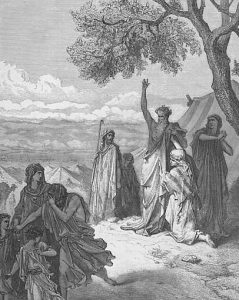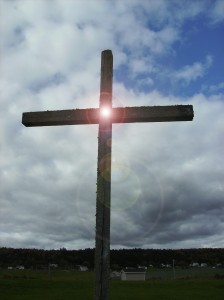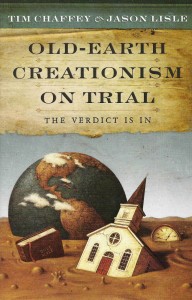
After learning what Ham had done, why did Noah curse his grandson, Canaan?
Shortly after the flood account in Genesis 7–8 and God’s covenant with Noah and his sons in the first half of Genesis 9, we read about a surprising event in Noah’s life. We are told that this righteous man who built the Ark and saved humanity and representatives of every land animal became drunk and lay uncovered in his tent. Then his youngest son Ham “saw the nakedness of his father, and told his two brothers,” prompting Noah to curse Ham’s son, Canaan, when he discovered what had happened.
This passage has confused countless Bible readers. Why would Noah get drunk? What did Ham do that was so bad? Did he only accidentally see the nakedness of his father? Did he mock Noah before his brothers? Did he do something more sinister?
Over the years, four interpretations of Ham’s actions have enjoyed a degree of prominence. This two-part series will survey those views, highlighting their respective strengths and weaknesses, before landing tentatively on one of the positions.
Before discussing the four views, let’s look at the full passage.
18 Now the sons of Noah who went out of the ark were Shem, Ham, and Japheth. And Ham was the father of Canaan. 19 These three were the sons of Noah, and from these the whole earth was populated.
20 And Noah began to be a farmer, and he planted a vineyard. 21 Then he drank of the wine and was drunk, and became uncovered in his tent. 22 And Ham, the father of Canaan, saw the nakedness of his father, and told his two brothers outside. 23 But Shem and Japheth took a garment, laid it on both their shoulders, and went backward and covered the nakedness of their father. Their faces were turned away, and they did not see their father’s nakedness.
24 So Noah awoke from his wine, and knew what his younger son had done to him. 25 Then he said: “Cursed be Canaan; a servant of servants he shall be to his brethren.”
26 And he said: “Blessed be the LORD, the God of Shem, and may Canaan be his servant.
27 May God enlarge Japheth, and may he dwell in the tents of Shem; and may Canaan be his servant.”
28 And Noah lived after the flood three hundred and fifty years. 29 So all the days of Noah were nine hundred and fifty years; and he died. (Genesis 9:18–29, NKJV)
In the 2005 edition of the Journal of Biblical Literature, Bergsma and Hahn published a paper explaining each of these positions in more detail, so if you would like to dive deeper, you can download the paper here.
Stop Making Excuses for Noah
Also, we do not need to try to make excuses for Noah’s behavior as some Christians have sought to do. For example, it has been proposed by some that fermentation may not have occurred prior to the Flood (based on the increasingly unpopular canopy model), so Noah did not realize what older wine would do to him. On the other hand, some have proposed that Noah was trying to drown his sorrows because his wife had recently died or because he was grieving over the loss of so many people during the Flood. All of these ideas are pure speculation and unnecessary. Yes, Noah was a godly man, but even godly people make mistakes, and the Bible does not shy away from exposing the sins of its heroes. Moses killed a man and David did far worse in stealing a man’s wife and then scheming to have her husband killed in battle. We know from our own experience that believers are not immune to moral failings, so while it may be interesting to consider what might have led to Noah’s behavior, we do not need to try to cover for him. Like us, he was human and fully capable of messing up.
Now, let’s get back to the issue at hand. What did Ham do that brought about the cursing of his son, Canaan. Let me add a disclaimer before you read any further. Some of the views discussed below might be quite disturbing for sensitive and younger readers.
Position 1: Voyeurism
Perhaps the most popular view among Christians, although not necessarily among Bible scholars, is that Ham simply saw his father lying uncovered in his tent and then told his brothers. This seems to be a rather straightforward reading of verse 22, and it is far less offensive than the other views, so why do some people reject it?
One difficulty for this position is that it assumes that in Noah’s time it was unethical in some way for a son to see his father naked. This is not directly stated in Scripture. Perhaps the notion that Adam and Eve recognized that they were naked and sought to cover themselves would lend support to the idea. Also, since Shem and Japheth walked backward and “covered the nakedness of their father” it could mean that they believed it was wrong to see him naked.
Proponents of this view have sometimes assumed that when Ham told his brothers what he saw, he mocked his father for being drunk and naked. Perhaps Ham had grown resentful of his father’s authority, so seeing his father’s failure brought about a certain amount of satisfaction for Ham. Imagine if he said something like, “Our dad is a drunken fool, embarrassing himself by lying uncovered in his tent.” Certainly, it is wrong to speak of one’s father in such a way, particularly when that man is a righteous man who did all that God commanded him when building the Ark. However, this response is an idea added to the text, so supporters of this view can no longer claim to simply be following the straightforward reading of the text. Also, it does not really provide a good explanation for other details in the account.
The remainder of the passage makes it clear that Ham did something that prompted a harsh response from his father. Noah cursed Ham’s son, Canaan, announcing that he would be a servant to Shem and Japheth (likely a reference to his descendants serving the descendants of Shem and Japheth). Is such a severe punishment really necessary for seeing one’s father in his birthday suit?
Furthermore, why curse Canaan at all? What did he do wrong? Ham is the one who did something to his father. While it is true that children often suffer for the sins of their fathers, it seems rather strange for Noah to single out one of Ham’s sons. Henry Morris speculated that since he was a prophet, Noah might have seen Ham’s sinful tendencies being prominent in his children, thus Noah cursed Canaan, Ham’s youngest son (presumably), as an indication that all of Ham’s offspring were cursed. Or maybe Noah saw Ham’s sinful tendencies being especially noticeable in Canaan. Some have said that Noah cursed Canaan because he could not bring himself to curse someone (Ham) whom God had previously blessed. Once again, the text does not speak of these ideas, so they are mere conjectures, although not out of the realm of possibility.
[Just an aside, please notice that Noah did not curse Ham. In the past, some professing Christians have pointed to the so-called “curse of Ham” as a ridiculous and racist explanation that this is where darker skinned people came from.]
Position 2: Castration
This view was popular among some Jewish rabbis and states that while Noah was passed out from his wine, Ham castrated his father. Why he might have done this is left unexplained in the text, but perhaps it was for some sort of power play to be the leader after the flood. This view seems to be quite a stretch. Nevertheless, it does have a couple of plausible arguments to support it.
According to this position, the reason Noah cursed Canaan is that Canaan was Ham’s fourth son, and Ham’s action prevented Noah from having a fourth son. So unlike the previous view, this one provides a plausible explanation for the cursing of Ham’s fourth son. It should be pointed out that although Genesis 10:6 places Canaan fourth in the list of Ham’s son, it does not necessarily mean he was the youngest since these genealogies did not always list people chronologically.
Ancient Greek mythology tells a story with a couple of details that bear a striking resemblance to the biblical account. The god Ouranos (Uranus) and goddess Gaia, representing heaven and earth respectively, had six children—the titans. As Ouranos attempted to lie with Gaia, four of their sons, Krios, Koios, Iapetus, and Hyperion held Ouranos, while another son, Kronos, castrated him with a sickle.
Of course, this story sounds rather silly to our modern minds. However, two points should be considered before writing it off as total fantasy. The titans, more specifically Iapetus, gave rise to all of humanity through his sons. So, just as the Bible explains that all people have descended from Noah’s family, the Greek myth also focuses on the progenitors of humanity. Second, look closely at the name of the titan from whom humanity descended: Iapetus. Does the name look familiar to you? It should. It is simply the Greek spelling of the name Japheth, Noah’s oldest son. Interesting, isn’t it?
The major problem with this view is that nothing in the text gives the slightest hint that Ham castrated Noah. Such an idea must be read into the passage.
Position 3: Paternal Rape
Probably the most disturbing of the views, if the previous one can be surpassed, is that Ham decided to rape his father. As troubling as the position is, it is growing in popularity in modern times, perhaps as a result of the increased focus on homosexuality in Western cultures in recent decades.
The primary argument for this view is that Ham must have done something more severe than observe his father’s nakedness. After all, verse 24 speaks of Noah awaking from his wine and learning what his “youngest son had done to him.” Paternal rape would certainly qualify as one of the most severe things something a son could do to his father, and it would understandably bring about a harsh response.
Elsewhere the Bible uses the same wording about the “father’s nakedness” as an idiom for sexual intercourse. Leviticus 20 includes several references to seeing or uncovering someone’s nakedness, and in each case, it is a figure of speech for sexual activity.
Two major problems with this view can be raised. First, like the other views mentioned so far, it does not provide a strong explanation for the cursing of Canaan when Ham was the culprit. Second, as we will see in the next post, while the terminology about seeing or uncovering one’s nakedness usually signifies sexual activity, the wording about the “father’s nakedness” does not refer to having sex with one’s father. Instead, it refers to engaging in sexual activity with the father’s wife, either one’s mother or step-mother. This leads us to the fourth and final view, which will be addressed in the next post.
Summary
By now, you can probably see why this passage is controversial and has confused many readers. The positions examined so far seem to explain part of the text, but they are weak on other points. In the second half of this series we will examine the fourth view, maternal incest, to see if it fares any better than the first three.
Thanks for reading.


